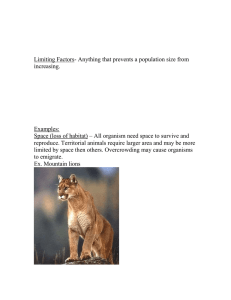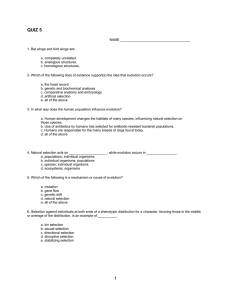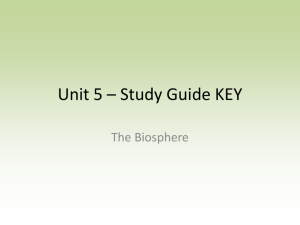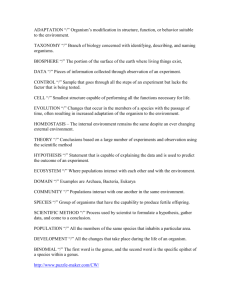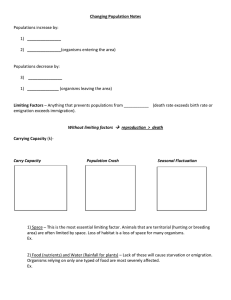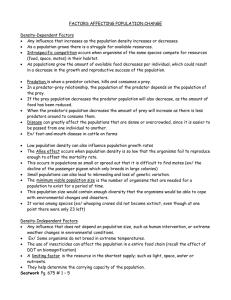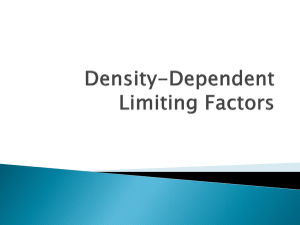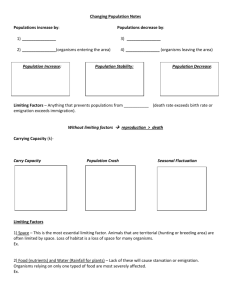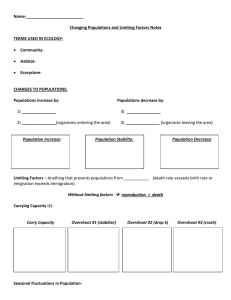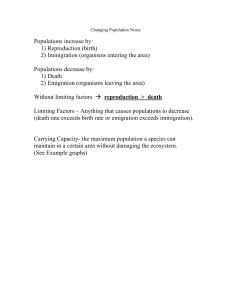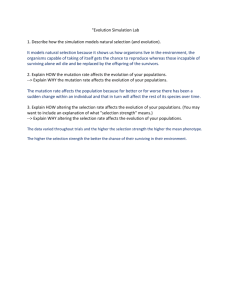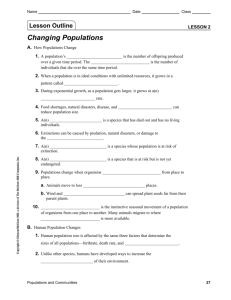Limiting Factors- Anything that prevents a population sized form
advertisement
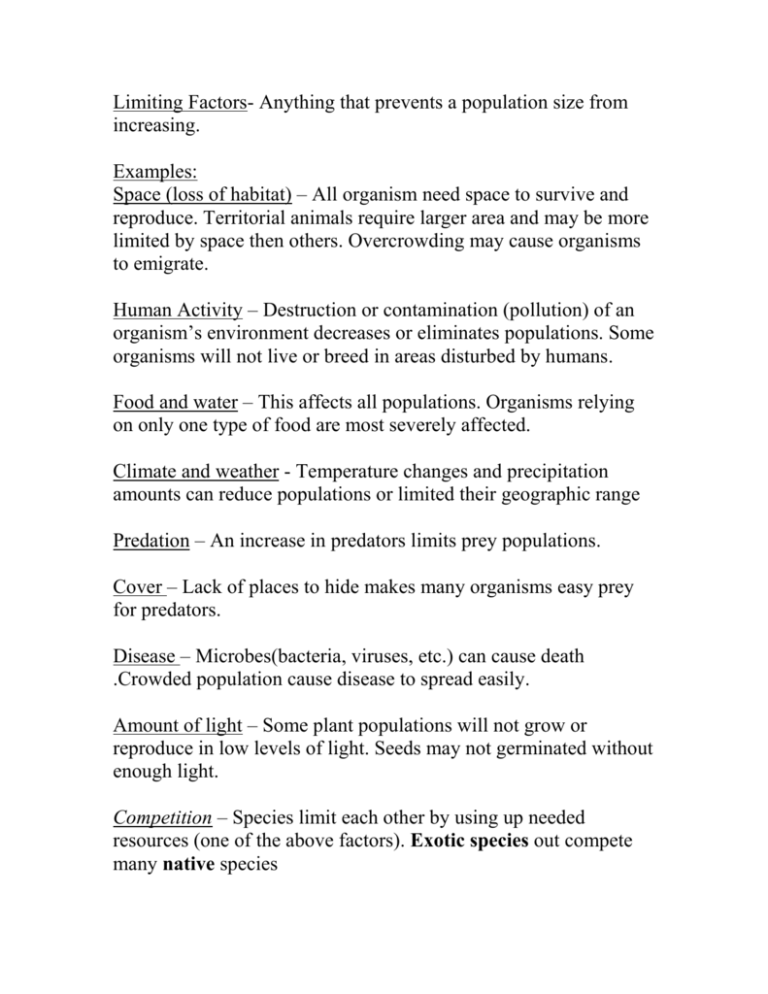
Limiting Factors- Anything that prevents a population size from increasing. Examples: Space (loss of habitat) – All organism need space to survive and reproduce. Territorial animals require larger area and may be more limited by space then others. Overcrowding may cause organisms to emigrate. Human Activity – Destruction or contamination (pollution) of an organism’s environment decreases or eliminates populations. Some organisms will not live or breed in areas disturbed by humans. Food and water – This affects all populations. Organisms relying on only one type of food are most severely affected. Climate and weather - Temperature changes and precipitation amounts can reduce populations or limited their geographic range Predation – An increase in predators limits prey populations. Cover – Lack of places to hide makes many organisms easy prey for predators. Disease – Microbes(bacteria, viruses, etc.) can cause death .Crowded population cause disease to spread easily. Amount of light – Some plant populations will not grow or reproduce in low levels of light. Seeds may not germinated without enough light. Competition – Species limit each other by using up needed resources (one of the above factors). Exotic species out compete many native species
